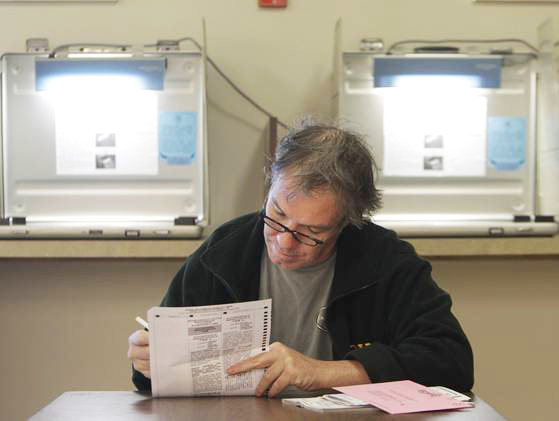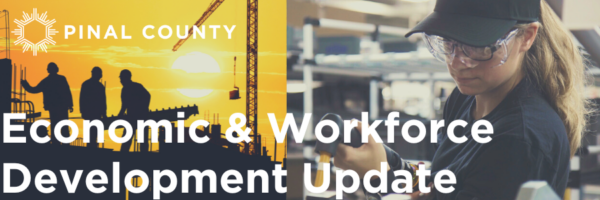Rose Law Group attorney
While everybody loves the thrill of the election (and the agony or the elation that accompanies the results), many don’t pay attention to the ballot propositions they merit. Ballot propositions represent one of the purest forms of democracy, bringing often-controversial policies directly to the people. These propositions, if passed, often take effect before any of our newly elected representatives make an impact. Accordingly, what follows is a brief analysis of each of this year’s ballot propositions and what their passage or denial might mean to you.
Proposition 114 – This was passed overwhelmingly and amended our Constitution to prohibit convicted criminals (or their families) from suing victims of their crime if the criminal was injured or killed during the crime’s commission.
What it means for you – This is unlikely to affect anybody. There is no case in Arizona where a bumbling felon succeeded, or even attempted to sue their intended victims. Further, no cases currently pending in Arizona would be affected by this amendment. If anything, this amendment was likely spurred by legal “urban legends” regarding robbers falling through skylights and winning generous damages from the homeowner (While robbers have sued the victims of crimes in other states, the legal issues presented in those cases are generally incredibly complex, going beyond the criminal’s simple ability to file suit, which is the issue addressed by this amendment.). Nonetheless, we can all rest safely that our wallets are now constitutionally protected from injury-prone robbers and their over-zealous attorneys.
Proposition 115 – This measure was soundly defeated by voters. The crux of this proposition was to give the governor greater power over the judicial nomination process and also would have expanded the number of nominees the judicial selection committee would be required to recommend to the governor when filling vacancies on the court. The proposition also would have addressed minor issues, such as extending the retirement age of judges and requiring most judicial decisions to be posted online.
What it means to you: This amendment would largely only have directly affected those in the legal profession. If anything, the defeat of this proposition is a philosophical victory for those who oppose greater executive power. The judicial nomination process will remain largely controlled by the Arizona State Bar, which has sent only the minimally required three candidates to the governor to fill the most recent vacancies on the state appeals and supreme courts. Although providing the governor with a broader array of choices might have been beneficial, especially given the large number of quality judges throughout the state, many believed this amendment would have granted virtual free rein to the governor to select the judge of her choice, regardless of qualifications. With this proposition’s defeat, Arizona’s well-regarded judicial nomination system remains unchanged, for now.
Proposition 116 – This measure was defeated by voters. The proposition was touted to have been a boon to small business formation and job creation. It would have permitted businesses to increase the exemption for business equipment and machinery from the current allowance of $68,000 to an amount over approximately $2 Million.
What it means to you: This will affect any current or prospective business owners, primarily in the manufacturing or restaurant industry. Many of our elected officials fervently believe investors and entrepreneurs are disinclined to open shop in Arizona because of its relative lack of tax benefits. Our Constitution’s uniformity clause requires all property of the same “classification” be taxed at a uniform rate. This measure was designed, therefore, to extend a massive benefit to all business owners in Arizona in compliance with our Constitution. The rejection was likely motivated by the dual concerns of fiscal responsibility (don’t cut revenue in the midst of a recession) and opposition to corporate welfare, even if that welfare is extended to all businesses. This sends a clear message that the public is not prepared to offer generous tax breaks to businesses in this economic climate, and we shouldn’t expect to see any similar proposals in the near future. As a result, many business owners looking to establish or expand operations must now budget their investment much more carefully and keep in mind that equipment and machinery will only be exempt up to a level of tens of thousands of dollars, and the Legislature must continue to consider other methods that will not disenchant the public at large to spur economic development.
Proposition 117 – This measure was passed by voters. It will markedly simplify the process of calculating home values for residential property tax purposes. It will also have the effect of limiting increases in home values by a maximum of 5 percent annually.
What it means to you: This will affect current residential property owners. The amount of taxes paid by property owners is determined by the county assessor’s valuation of the property. Undoubtedly, this amendment will greatly simplify the valuation process and add much greater certainty to property value increases for residential property owners. Opponents complain, however, this cap on valuation increases will severely impact their budgets as revenues increases would be limited in concert with the limit on value increases. To avoid budgetary shortfalls, local legislators overseeing taxing districts are likely to attempt to increase the tax rates. Even if that proves to be the case, legislators are much more accountable to voters than assessors, and increased tax rates should receive markedly greater public scrutiny as a result. This amendment, on balance, should therefore vest much greater control over the amount of taxes paid by property owners to the owners themselves, but the state budget could suffer as a result.
Proposition 118 – As of today, the fate of this measure is still too close to call, though the opposition is currently in the lead. If passed, this proposition would temporarily amend the constitutional formula for disbursing state land trust funds to its beneficiaries, primarily the Arizona public school system.
What it means to you: This proposition will primarily affect Arizona public schools. Arizona owns millions of acres of state land and holds that property in trust, with any proceeds made from the sale or lease of such land to the Arizona school system (as well as a few other beneficiaries). Of course, when the distribution formula controlling disbursement of such funds to the school system was created, it was unable to fully account for the size and scope of our current educational system. This has resulted in a series of erratic annual disbursements of funds, with the school system receiving as little as zero dollars in some years. Although there is no guarantee the distribution formula espoused by this proposal would have been more beneficial than the initial formula, any negative impacts would largely be mitigated by the fact the effect of this proposal was set to automatically expire in 10 years. In light of the temporary nature of the amendment and the pressing need for a consistent additional source for school funding, it will be a minor disappointment if this proposition does not pass to ensure schools receive funds they are already entitled to on an annual basis.
Proposition 119 – This measure was passed by voters. The proposition permits the state to exchange its land with military facilities own under limited circumstances.
What it means for you: This will generally affect taxpayers and those in favor of disposing of state land. Although a similar proposition to this has been defeated in the past, this proposal was updated to include many safeguards protecting state interests the original lacked. Ultimately, this should permit the state to maximize the value of its land holdings, while also meeting the needs of military bases and facilities located throughout the state. A broader view is the public has voiced its support of the state actually disposing of its land. The state has been notoriously reticent to sell or otherwise utilize much of its state land (possibly as a side effect of the collapse or failure of many state land transactions during the recent recession). Hopefully, this vote will have the added benefit of encouraging the state to move forward with deals that will maximize the value and usage of state land. Productive land use helps to create jobs and generate more revenue for the state land’s beneficiaries, including the Arizona school system.
Proposition 120 – This measure was easily defeated by voters. This proposed to authorize the state to declare its sovereignty (i.e. ownership) over non-Indian federal public lands (i.e. the Grand Canyon).
What it means to you: This would have primarily affected taxpayers had it been passed. In a time of ever-expanding federal power, Arizona has made it quite clear it values its sovereignty and has challenged the scope of federal power on several occasions (i.e. the passage of S.B. 1070, an unsuccessful ballot proposal in the past election authorizing nullification of federal law, opting out of the individual mandate requirement of the Affordable Care Act). This proposition is another in this string of attempts by essentially claiming ownership of all (non-Indian) land and natural resources within Arizona’s borders, even land and resources that has always been in federal hands. While the merits of actions such as these are certainly debatable, if this proposition had passed, Arizona taxpayers would have almost surely been on the hook to fund yet another protracted lawsuit against the federal government. So, from a purely economic standpoint, the defeat of this proposition allows Arizona’s legal defense fund to remain untaxed in the near future.
Proposition 121 – This measure was defeated by voters. The proposition would have eliminated the party primary system, instead requiring that candidates of all parties to face-off in one all-encompassing primary, with the top-two vote-leaders advancing to the election itself. Further, individuals of all political affiliations would be permitted to participate in the primaries.
What it means to you: This would have primarily affected voters who are currently restricted from voting in a party’s primary because of their party affiliation (or lack thereof), as well as the party system itself. The proposed “one-primary” system has been adopted in other states, with mixed results. The idea is this system would generally allow more moderate candidates to advance to the election, rather than force the general populace to vote for candidates that best appealed to their registered political base in the primaries. Regardless of the effectiveness of such a system, the general consensus is third parties (i.e. Green or Libertarian) are largely disenfranchised in such a system. In a year when third-party candidates made huge strides in both state (the Libertarian candidate in the Sinema-Parker race has captured just over 6 percent of the vote) and federal (Gary Johnson garnered more than 1 million votes.) elections, it would be a shame to silence them. Further, polls show a deeply divided ideological divide among U.S. voters, suggesting moderate candidates would not be best situated to represent the interests of ideology-driven constituents.
Proposition 204 – This measure was soundly defeated by voters. The proposition was set to maintain a permanent sales tax increase of 1% to be utilized for educational purposes.
What it means for you: This affects taxpayers and our state school system. Similar to this year’s Proposition 118, this amendment sought to provide an annual and permanent funding source for schools. It would replace a temporary sales tax increase meant to fund education, which expired this year. Voters handily defeated this measure, meaning schools will now need to be more flexible and innovative with their budgets than perhaps any other time in Arizona history. All, however, is not “lost.” Thanks to a thriving charter school system, there are still many choices available to prepare our children for the future. Further, this vote should help galvanize public school supporters to heavily lobby state legislators to restore funding cut in previous years, making school funding a sure-fire priority issue moving forward from this election.
Contact the author, attorney, Evan Bolick, at Ebolick@roselawgroup.com












